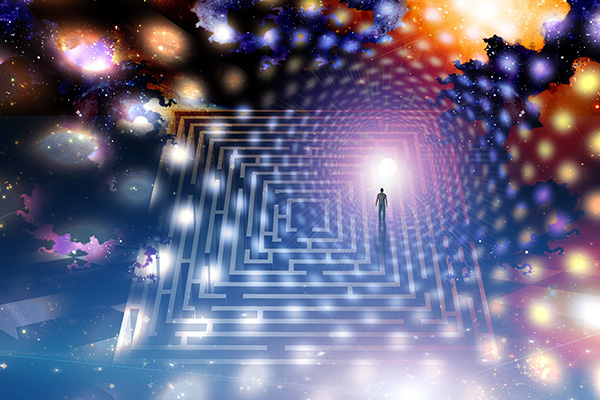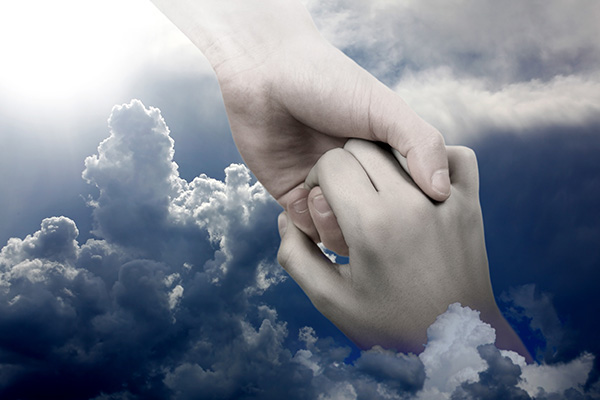lifetime
The Enigma Of Your Soul Contract
 Before we come into this lifetime, we design a soul contract. We choose a family that we want to be born to and we plan specific things that we want to accomplish, such as career, relationships, children, and so on. The contract is about our spiritual self and therefore also includes those things that we need to overcome and learn from.
Before we come into this lifetime, we design a soul contract. We choose a family that we want to be born to and we plan specific things that we want to accomplish, such as career, relationships, children, and so on. The contract is about our spiritual self and therefore also includes those things that we need to overcome and learn from.
Some of the more important things in your contract may come as a surprise, because often they are those things you do not want to do! This is usually a sure way of knowing that something is contractual. The things we prefer to do, or have done, we’ve already mastered, but the challenges and obstacles offer us opportunity to overcome our fears and anxieties, to step forward and learn more, to grow spiritually.
Some contracts are also much longer than others. Some of us remain here for a long time, while others do not. I doubt anyone knows for sure, but for the time that we are here, we must make every effort to learn and grow from every life experience.
This is also why some of us attract the wrong people, and constantly get into the wrong relationships? In these cases it is often your soul contract trying to teach you to speak up for yourself and claim your self-worth.
When old souls come in, usually nothing bothers them. They tend to take things with a grain of salt. However, when new souls come in, they are often very excited about so many things and can’t seem to get enough done.
There are also the creative souls, who are very talented, but also have a lot of emotional stress. Part of their contract is to learn to manage their stress better, so that they can be more open to their creative gifts. Continue reading
Do Our Loved Ones Become Our Spirit Guides?
 While doing mediumship readings, I often have people ask me if their loved ones who have crossed over are now their spirit guides. The answer is, no. While our loved ones, who have crossed over, do watch over us, and communicate with us through dreams and other means, they are not our spirit guides.
While doing mediumship readings, I often have people ask me if their loved ones who have crossed over are now their spirit guides. The answer is, no. While our loved ones, who have crossed over, do watch over us, and communicate with us through dreams and other means, they are not our spirit guides.
Becoming a spirit guide requires many life times of experience, schooling and training. Our loved ones can give us energy, love and light, but they are not allowed to interfere with our destiny in any way.
So, what is the difference between spirit guides and loved ones who have crossed over?
Spirit guides are with us before we choose our life. They help us decide what goals we have and what we want to emphasize and work on in the next life. They remind us of the lessons in life we struggle with every life.
Our guides also remind us of the lessons we have avoided signing up for in our past lives. Have you taken on disability? Poverty? Wealth? Abuse? Fame? What adversities have you overcome and which ones will you need to take on?
Often we feel we are being punished by these adversities when on earth, when in reality, we decide to take them on and gain the strength, compassion, empathy and wisdom they teach us.
Every soul will need to take on the mirror images of every human experience. Poverty and wealth. Sickness and health. Justice and injustice. Power and powerlessness. Freedom and restraint. These aren’t punishments.
Not A People Person, Or Pleaser, And That’s Okay!
 I have had clients tell me that they feel something is wrong with them, because they don’t like to be around people. They prefer solitude.
I have had clients tell me that they feel something is wrong with them, because they don’t like to be around people. They prefer solitude.
Others feel disconnected when around people, or it makes them feel smothered. People make them feel drained, or they feel out of their element.
If you are someone that does not like to be around people, or feels a sense of disconnect when in large groups, or even just engaging with others, fear not! I have some very good news to share with you.
It is my hope and prayer that this information will help you to stop being so hard on yourself when it comes to your social preferences. You do not need to feel guilty for not wanting to slap on a “happy face” and pretend to be someone you are not.
There is nothing wrong with you in my opinion. There is a simple reason why you don’t enjoy being around other people so much. The reason is that you have been to this planet many times before and basically you have “been here done this,” as it were.
Okay, so you don’t feel like being around your fellow humans. What to do? Tell yourself this, “it is okay that I don’t want to engage with others.” Then tell yourself, “I love myself just the way I am and now see the beauty in me that I never did.
But instead of judging myself, or thinking there is something wrong with me, from this day forward I promise to allow myself to embrace the freedom of placing myself where I feel comfortable, and free, and at peace.” Continue reading
The Man Who Pushed Me Off A Cliff
 Since I was a child, I have had fragmented memories of my past lives. These flashbacks are all parts of those lives and lessons that pertain to my soul growth and karma in this lifetime.
Since I was a child, I have had fragmented memories of my past lives. These flashbacks are all parts of those lives and lessons that pertain to my soul growth and karma in this lifetime.
So far, all of my past life memories have had to do with someone I have interacted with here, in my current incarnation. In other words, I have met all of the people in my past life memories in this lifetime also.
One such memory of a past life, is of a man I was married to in Ireland. We were quite young. I would say no more than 20. We were poor and lived in a little cottage, near a cliff overlooking the ocean. It was a modest, but breathtakingly beautiful home and land. I also remember that I had long, curly red hair.
Sadly, my husband in that lifetime was physically and emotionally abusive. He was always worried that men would desire me and take me away from him.
But I had never been with any man but him. I didn’t want to be with my husband, but I certainly didn’t want another man to control and own me either.
He kept me prisoner in our home and refused to let me leave. My solace was the church. My soul’s water and food was the sunlight, and the sounds and smell of the ocean. My fantasies consisted of building a boat and heading out into the vastness, toward the sunset, letting the ocean’s waves carry me away to wherever she wished me to be. Interestingly, in my present life, nature has always been my sanctuary.
The Emotional Imprints Of Past Lives
 I once did a psychic reading for a lady who had a real fear of the ocean. Her fear extended to being a passenger in an aircraft flying high above the ocean, to being on the beachfront trying to relax to the sound of waves crashing along the shore-line. She had booked a session with me to see if we could discover the source of her deep-seated fear of the sea.
I once did a psychic reading for a lady who had a real fear of the ocean. Her fear extended to being a passenger in an aircraft flying high above the ocean, to being on the beachfront trying to relax to the sound of waves crashing along the shore-line. She had booked a session with me to see if we could discover the source of her deep-seated fear of the sea.
The answer to people’s emotional blocks often comes to me through imagery and sounds, which I receive in my mind’s eye.
In this client’s case, the answer came ‘crystal clear.’ I saw a vision of a sailing ship from the 1800s being thrown around in a terrible storm, and I knew right away, that it was a past incarnation from whence her fear of water stemmed.
She had, in fact been a sailor on that ship, which sank. She died at sea after being swept overboard during tumultuous weather conditions.
The actual cause of many relationship challenges or emotional problems can lie in trauma which went unresolved in a previous life.
Emotional wounds leave emotional imprints, which filter into our current emotional condition. Locating the root problem from past lifetimes can go far in freeing us to move forward, free from those shackles that keep us stuck.
Have you ever felt uneasy when meeting someone new, without even knowing anything about them? It’s my belief that one can be holding a memory of a shared past life, in which the soul essence of the person, with whom we are ill at ease, was someone who harmed us in some way in another lifetime.
Heal Your Life With The Great Law
 Do you have a lot of recurring drama in your life and the same negative situations repeating again and again? Do you keep attracting the same kind of toxic people and energy thieves into your life?
Do you have a lot of recurring drama in your life and the same negative situations repeating again and again? Do you keep attracting the same kind of toxic people and energy thieves into your life?
If so, you may benefit from learning more about the laws of karma and how to apply them in your everyday life, as these universal laws can transform your life for the better if we honor them in our spiritual practice and daily life.
Hindu and Buddhist spirituality recognizes 12 Laws of Karma. The first and most important of these is The Great Law, also known as the Law of Cause and Effect. This fundamental karmic law has helped me a lot to uncomplicate my own life since my spiritual awakening.
The Great Law teaches that whatever we sow, we shall reap. Every cause has an effect. Whatever put out into the world will eventually come back to us. Even the good and bad things we wish upon others will return to bless, or curse us.
Once we understand the role of The Great Law in our life, we become more aware of how we can eliminate negative patterns in our life and begin to attract more positive, new things.
The energy we emanate each day in the form of thoughts, wishes, fears, desires, attitudes, and beliefs will determine what will return to us as manifested experiences, events and circumstances.
Intention is everything in karmic law. For example, you start dating someone, but you live in fear of that person leaving you, or betraying you, so you are emanating an energy frequency of fear. In the end, it is very likely that you will lose that person. Fear attracts fear, love attracts love, and gratitude attracts gratitude. It’s that simple.
 I was meditating deeply one afternoon wanting to connect with my spirit guide. I wanted to see if I there was anything that I needed to know, or anything that could help me be a better person. I then heard the words: “Time waits for no one.”
I was meditating deeply one afternoon wanting to connect with my spirit guide. I wanted to see if I there was anything that I needed to know, or anything that could help me be a better person. I then heard the words: “Time waits for no one.”